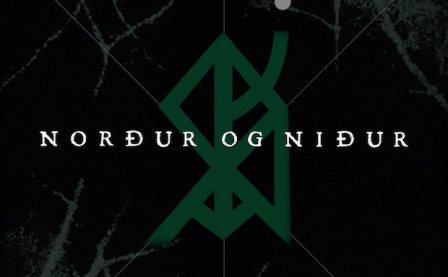Dan Deacon’s songs aren’t as comparable to entries in a diary as they are to levels in a video game. Each new plateau the player/listener reaches offers a new set of challenges, enemies/obstacles, and color schemes; the reward for sticking it out through each terrain is the promise of new, untold-of adventures. There are other reasons for this comparison, chief among them that Bromst, rather than echoing the feel of a video-game soundtrack -- how many times has that been ascribed to scene counterparts Adventure and other acts? -- is the sort of auditory collection you could build a video game around. It’s that vivid; some of the pixels are warped at the edges, and there’s still small traces of the Woody Woodpecker annoyances that made Deacon’s debut Spiderman of the Rings more fun in tiny, measured doses -- but as a package Bromst is a lumbering, captivating, less-challenging beast.
In this case, the decrease in difficulty is a power-up. Digesting Spiderman is like playing Contra straight, but working with Bromst is akin to playing Contra after hitting up-up-down-down-left-right-left-right-B-A-B-A- START: You have a better chance of both appreciating the color-blast material AND making it to the end.
And believe-you-me, the creative thrust behind Bromst is as large and throbbing as the Motherbrain itself. Commanding control of his toys like a maestro does an orchestra, double-D jiggles and slaps his sound around like a digital pair of tits, making room for all manner of riff-raff as he constructs linear progression after progression after progression after... well, you get the idea. And that’s the only part of the equation that nags: The way each song embarks on a similar mission of slowly gathering steam in order to cap it all with another fluorescent-pink exclamation point. It isn’t a bad approach at all, but it slowly begins to define Bromst, to the point where, at times, you might ask yourself, “What exactly am I waiting for?” as vast stretches pass with little save alternating hooks to get you through. But, in the end, Deacon balances out the books. Besides, if you’re like me and spent half your adult life waiting for post-rock climaxes, you’ll be just fine with the way these loooong tracks shake out.
Not to mention that temporary breaks allow the ear to stretch out and find purchase amid the storm of effect, loops, keys, and clickety-clack. “Wet Wings” is shorter than the rest of the songs and much, much sparser. Its sole vehicle is the mournful voice of a woman who sounds like she is chanting at a loved one’s funeral, that is until she is cloned and her refrains clutch one another, divide and cling together once again until the whole mess is no longer discernible. It’s a thoughtful album intermission, and after a few listens, it becomes as much fun as the circus surrounding it; so much fun that one wonders what Bromst would sound like with a few more ‘intermission’ tunes as padding, more minimalism, more-more-more motherfucker!
Which just goes to show: The best art leaves the observer inspired at the possibilities. That’s what Deacon’s latest is best at, crafting new worlds that any adventurous listener would be crazy not to delve into and, ultimately, expand upon. The way Deacon transitioned from the format of his cartoon-y debut to the sparkling sidewalk-chalk innocence here is astonishing, comparable to the bump in quality and focus we all felt when Ágætis Byrjun proceeded Von or Person Pitch followed Young Prayer. It’s the hyper-distinguishable leap from idiosyncratic-but-lovable to just-plain-lovable that makes Bromst -- and Danny Boy himself -- of increased import.
1. Build Voice
2. Red F
3. Paddling Ghost
4. Snookered
5. Of the Mountains
6. Surprise Stefani
7. Wet Wings
8. Woof Woof
9. Slow With Horns / Run For Your Life
10. Baltihorse
11. Get Older
More about: Dan Deacon




